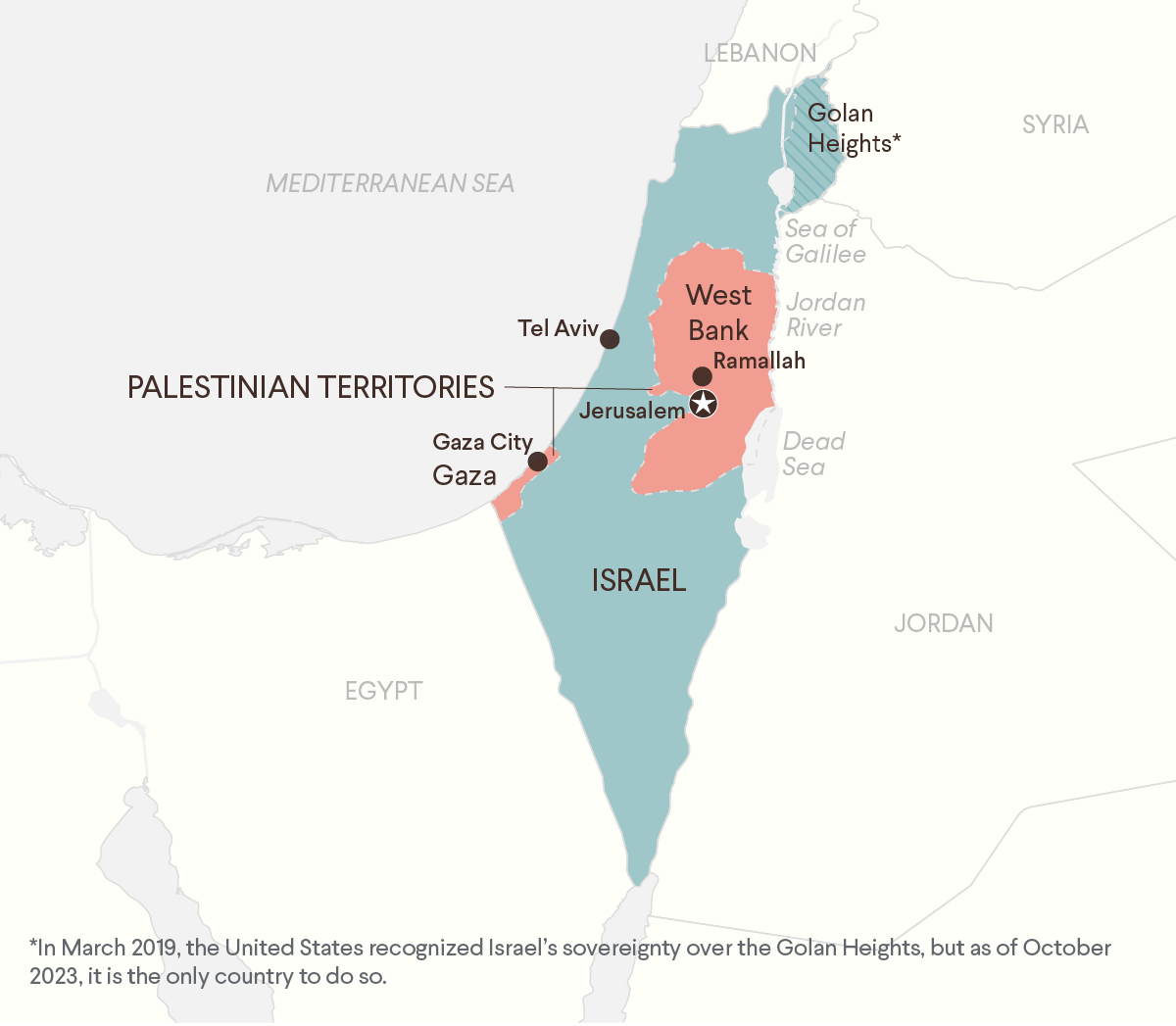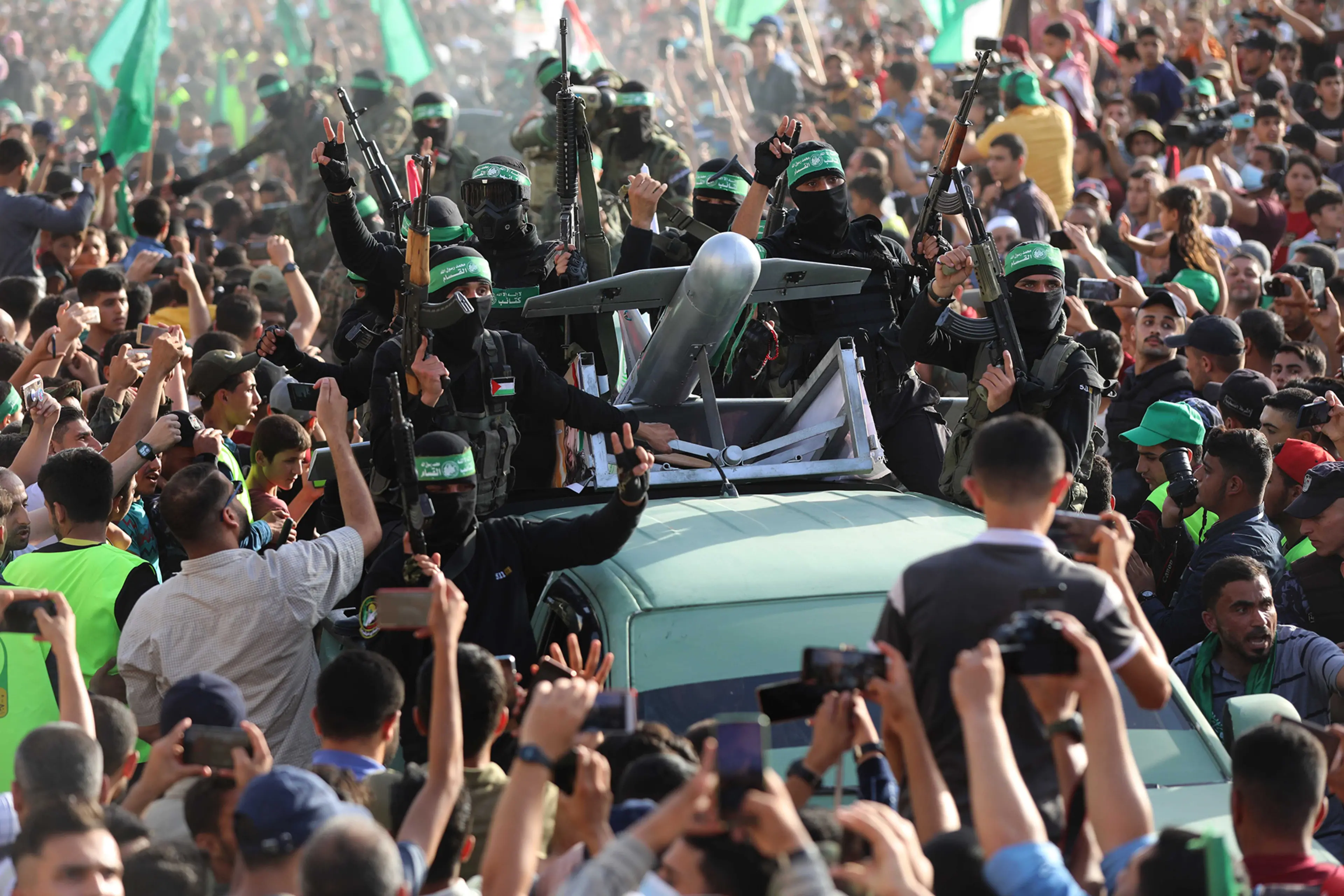Palestinians for Peace and Good Governance
"Israel will exist and will continue to exist until Islam will obliterate it. [Jihad is] the individual duty of every Muslim.""The land of Palestine is an Islamic Waqf [holy possession] consecrated for future Muslim generations until Judgement Day.""No one can renounce it or any part, or abandon it or any part of it."Hamas Covenant"There will never be peace ... We'll take what you give, but we will never give up our armed struggle.""As long as I, Sheikh Yassin, am alive, I shall make sure that there will be no peace talks with Israel.""I do not have a time problem: ten more years, 100 more years -- in the end you will be wiped off the face of the earth."Ahmed Yassin, Hamas founder

Any onlooker into the Middle East conflict between the State of Israel and the Islamist terrorist groups -- first the Palestine Liberation Organization and its various arms, now its reiteration in Fatah and the Palestinian Authority, and the even grimmer Hamas and Palestinian Islamic Jihad, Hezbollah, and lesser but lethally determined groups to obliterate the Jewish state -- who believes that reason and practical intelligence can prevail over institutionalized violence bred and led by the Arab/Muslim states that greeted the fledgling state in 1948 with a military welcome, suffers from inattention.
It is not possible to negotiate with groups dedicated to the eradication of a legally constituted state on the ancestral lands of its predecessors which welcomes a vast diaspora of people who have suffered indignities, discrimination, oppression, pogroms, exiles, and finally genocide over the millennia since they rebelled against an occupation of a foreign dynasty with a global reach. Fatah, which governs the area the West and the UN refers to as the 'West Bank', shares the Hamas agenda of re-occupying the land Israel sits upon, but it is far more discreet than Hamas; the former is secular, the latter religious.
"The Day of Judgement will not come about until Muslims fight Jews and kill them. Then the Jews will hide behind rocks and tees, and the rocks and trees will cry out: 'O Muslim, there is a Jew hiding behind me, come and kill him'."Islamic Hadith
When the founder of Hamas, Ahmed Yassin, was imprisoned in an Israeli jail, he managed to control and order Hamas, giving the group instructions on how to proceed with their deadly agenda. Around 1992 the Hamas campaign of suicide bombing attacks began against Israelis. In 1992 a group of soldiers close to a West Bank settlement was targeted.
Prime Minister Yitzhak Rabin and PLO leader Yasser Arafat signed the Oslo Accords, brokered by the U.S., meant to lead to peace and eventually, a Palestinian state. A situation that led Yassin to increase the frequency and deadliness of the suicide attacks. A similarity can be seen in the current situation, where Israel, with U.S. brokering assistance has signed peace agreements under the Abraham Accords with Morocco, the United Arab Emirates and Bahrain.
The long-awaited rapprochement between Saudi Arabia and Israel, which would in time lead to additional members of the Arab League joining the accord for peace with Israel, alarmed the Islamic Republic of Iran, which called upon its proxies to take action that would destroy any opportunities for peace agreements beyond that of Israel with Jordan, Egypt and the latter three states. What happened when Hamas and Palestinian Islamic Jihad fired hundreds of rockets into Israel and Hamas broke through the separating wall to slaughter 1,400 mostly civilian Israelis was to create dire tension.
Thirty years ago, Hamas expanded targeting of Israel into Israel's internationally recognized borders to target civilians on commuter buses, gathering places, restaurants, on the street, committing carnage on a larger scale, in reaction to the Oslo Accord. Negotiations for a peace agreement in 2000 saw Israel offering self-harming concessions to the Palestinians in their eagerness to avoid an increase in attacks and hope for a cessation to all attacks. Only to be met with refusals, followed by more suicide bombing.
Yassin was finally assassinated in 2004, effectively martyring him as a celebrated figure of 'resistance' for Palestinians enamoured of deadly violence. The general view outside of the Middle East is that Palestinians who are exploited by their Hamas rulers in Gaza, and who become civilian shields when Hamas places rocket launch sites inside schools, hospitals, apartment complexes, and in other densely populated enclaves, fear and detest Hamas for failing to provide them with opportunities to prosper.
Nothing could be further from the truth. The 2006 Palestinian legislative election saw Hamas win 44.5 percent of the vote, giving them 74 of 132 seats. An election judged by international observers to be free and fair. A year and a half later, Hamas violently seized control of Gaza from Fatah, after Israel had pulled out all its settlements and its military presence, leaving the enclave to the Palestinians entirely. The struggle between Fatah and Hamas was violent and conclusive; Fatah outed and Hamas in control.
No follow-up election has ever been held. Current politics, according to the Palestinian Center for Policy and Survey Research saw its most recent poll in June concluding that "two-thirds of the public do not believe that Israel will celebrate its centenary (in 2048), and a majority, albeit a small one, believes that the Palestinian people will, in the future, be able to recover Palestine and return its refugees to their homes".
The concept of a two-state solution, overwhelmingly supported by the Western world whose charity has supported the Palestinian territories for the past 70 years, is supported by a mere 28 percent of Palestinians, with 70 percent in opposition to it. The Palestinian Authority is not favoured by Palestinians, half looking for its collapse, while 71 percent are in support of the formation of independent armed militias.
And while 69 percent of the Palestinian population would like to have an election, if one were held, 56 percent would vote for Hamas leader Ismail Haniyeh and a mere 33 percent for Mahmoud Abbas, president of the Palestinian Authority. As for hopes of peace, 53 percent percent of Palestinians are in support of a return to an armed intifada, with 47 percent in support of peaceful resistance. Overall, a population choosing to reject Israel's right of existence, believing that achieving a Palestinian state is only achievable through violence.
 |
| The Palestinian militant group has struggled to govern Gaza and remains
committed to violently resisting Israel. Its surprise attack against
Israel in 2023 threatens a wider conflagration in the Middle East. Council on Foreign Relations |
Labels: Hamas, Islamist Terrorism, Israel, Oslo Accord, Palestinian Authority, Palestinians in Favour of Violence, Yasser Arafat

0 Comments:
Post a Comment
<< Home